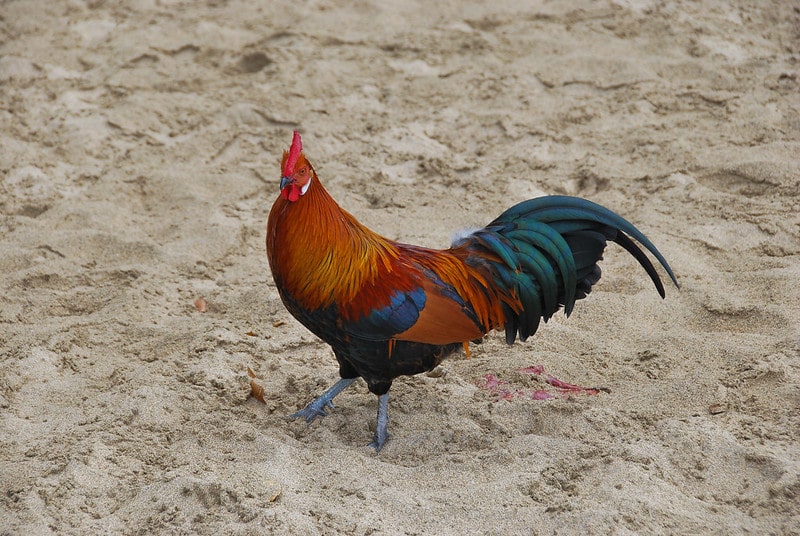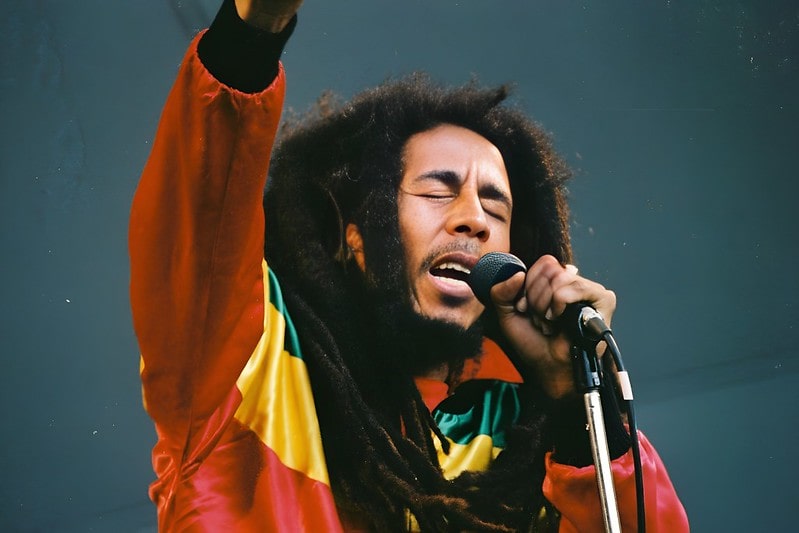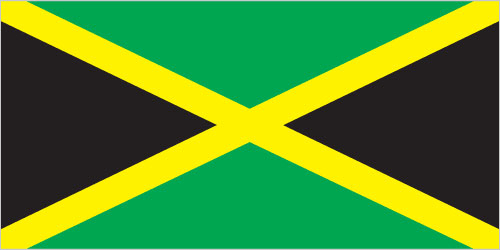Last updated on January 31st, 2024
56. Jamaica has a unique tradition relating to the birthing of a child. Once the child is born in Jamaica, 2 things happen with the newborn: the umbilical cord and placenta are buried inside the land, and at the same spot, a tree is planted. Later in life, these children are given the responsibility of taking care of these trees.
57. Just like the post-birth tradition, Jamaicans also have the tradition when someone dies. They remove all the furniture and turn the mattress so that the spirits of the deceased could not recognize the house for at least 8 days.
58. Another interesting ritual that Jamaicans have is “red string culture”. When a woman’s husband dies, they sleep with a red string around their waist to keep their husband’s spirit away.
59. Trust (or rather, a distrust of those in authority) is a major part of Jamaican culture. Jamaicans would rather place their faith in friends and family than trust any person with “official” status. For example, they prefer to form a “partner” with friends and family rather than go to a bank to secure a financial loan.
60. Due to the fact that its inhabitants stem from all four corners of the world, Jamaican cuisine is quite literally a melting pot of many culinary influences. The country’s national dish is Ackee and Saltfish, with jerk chicken, curried goat or mutton, and oxtail with broad beans bringing up the rear.

61. Chicken is probably the true favourite among Jamaican meat eaters.
62. Despite the many hardships faced by Jamaicans, in general, they are a laid back people. The popular phrase, “No Problem Mon,” or some variation thereof is a fairly accurate summary of the Jamaican attitude.
63. Reciting The Lord’s Prayer is a mandatory part of the morning proceedings in all public schools.
64. The Hon. Louise Bennett Coverly (Miss Lou) is often thought of as Jamaica’s cultural hero. She played a large role in the promotion of Patois as a legitimate (and celebrated) means of communication.
Facts about tourism in Jamaica
65. As the base of its economy, tourism is the most important industry in Jamaica.
66. Jamaica has one of the highest numbers of rum bars per square mile– a pleasant surprise for many visiting rum connoisseurs.
67. Whenever they leave the country, tourists are required to pay a $35 departure tax.
68. Jamaicans are big on hospitality, which is why two of the country’s airports have VIP lounges to welcome tourists with that authentic Jamaican vibe.
69. Jamaica has a shoreline of 494 miles or 795 kilometers. Out of these, 4500m of shoreline is used by the local public, and the rest is used by hotels and commercial places.
70. There are 50 public beaches dotted around the island that are open to tourists. The most famous of these are Negril and Doctor’s Cave Beach in Montego Bay.
71. Jamaica has a different type of river rafting known as “Bamboo river rafting”. In this, they provide a 30-foot-long Bamboo boat for rafting.
72. In 2019, Jamaica was ranked #1 in TripAdvisor’s list of best destinations to visit in the Caribbean and #14 in the world.
8 Reggae Music Facts

73. The man behind the popular reggae culture of Jamaica, who is popularly known as Bob Marley, was born and brought up on the streets of Jamaica in 1945.
74. Reggae music, which is at the core of Jamaica, Bob Marley was one of the pioneer artists in that genre. Through his music, he made the struggles and resistance of Jamaica famous and known to the world. In 1971, Bob Marley and Peter Tosh released their first album and made reggae music known internationally.
75. Bob Marley’s “Legend” is the highest selling reggae record of all time.
76. Worth a whopping $22 million, Shaggy is the richest living reggae artist. If Bob Marley were still alive, analysts predict that he would be worth $130 million.
77. Reggae was developed almost by accident in Kingston after rocksteady, which came about after ska.
78. Since its invention, Reggae has been a vessel for musicians to express political and social views. It has been tied to the Rastafari movement for many years.
79. There are more than 200 reggae festivals around the world each year.
80. Jamaican, Kool Herc, is responsible for starting rap and hip-hop music. Google celebrated the 44th Anniversary of the Birth of Hip Hop with a Doodle on their home page on August 11, 2017.
About the flag of Jamaica

1. Design and Symbolism
Jamaica may be a small island in the Caribbean, but its culture and athletes are famous worldwide. These made the Jamaican flag highly recognizable, although few know its meaning and history.
The flag of Jamaica has a gold diagonal cross extending from corner to corner, creating four triangles pointing inward. The top and bottom triangles are green, while the left and right are black.
In 1962, a government paper provided official color interpretations. Black represented hardships in the country, while green signified fertile land, and gold symbolized abundant sunshine.
In 1996, a committee recommended a more positive interpretation. Now black represents the strength and creativity of Jamaicans that enable them to overcome challenges. Gold stands for the golden sunshine over the land and the wealth of the country. Green signifies hope and the lush vegetation within the island nation.
2. Adoption
Jamaica adopted the flag on August 6, 1962, in time for independence.
3. Technical Details
The flag dimensions follow a 1:2 ratio. The thickness of the cross is one-sixth of the flag width. As for the colors, the HEX values are FFB81C (yellow), 007749 (green), and 2D2926 (black). In the Pantone system, use 1235C, 3415C, and Black C.
4. History
Under Spanish Rule
Jamaica was a Spanish colony from 1509 to 1655. Many of the natives died due to disease or violence. The colonists brought in slaves from Africa to increase workers. Today, Black and Mixed Black people comprise over 90% of the population.
Under British Rule
England conquered the island and developed sugarcane plantations. When the British abolished slavery in the 1800s, landowners turned to indentured servants from China and India to fill the labor gap. Under Britain, the Jamaican flag had the Union Jack and the island’s coat of arms on a blue field.
Independent Jamaica
In the 1940s, unrest led the British government to institute political and economic reforms: universal adult suffrage, a new House of Representatives, and a two-party system. Caribbean colonies also formed the Federation of the West Indies in 1958. Its flag was a field of blue with four wavy white lines representing the sea and an orange disc representing the tropical sun.
Jamaica left the federation and sought independence. In preparation, the government held a flag design contest with a prize of £100. It attracted more than 360 entries, yet no winner came out of the twelve finalists.
A bipartisan committee considered a horizontal tricolor, but it was too similar to the flag of Tanzania. Finally, they chose a diagonal cross to make the design more distinctive. The flag flew for the first time when Jamaica gained independence on August 6, 1962.
5. Flag Facts
Jamaica has the only national flag in the world without the colors red, white, or blue.
Some flag design proposals are in the Special Collections of the National Library of Jamaica. Eye-catching designs include a white crocodile on a blue field and a Cross of St. George with pineapples. The crocodile is an indigenous reptile, while pineapples are indigenous fruits. Both appear on the Jamaican coat of arms.
Quick facts about Jamaica
| Independence | 6 August 1962 (from the UK) |
|---|---|
| National Anthem | "Jamaica, Land We Love" |
| Capital City | Kingston 17°59′N 76°48′W |
| Largest City | Kingston 17°59′N 76°48′W |
| Total area | 10,991 sq km |
| Area - comparative | about half the size of New Jersey; slightly smaller than Connecticut |
| Population | 2,823,713 (2024 est.) |
| Official Language | English |
| Suffrage | 18 years of age; universal |
| Demonym | Jamaican |
| Literacy rate | 88.7% |
| National symbols | green-and-black streamertail (bird), Guaiacum officinale (Guaiacwood) |
| National colors | green, yellow, black |
| Government type | parliamentary democracy (Parliament) under a constitutional monarchy; a Commonwealth realm |
| Monarch | Charles III |
| Prime Minister | Andrew Holness |
| Life expectancy at birth | 76.3 years (2024 est.) |
| Borders | No land borders (Island country.) |
| Currency | Jamaican dollar (JMD) |
| Industries | tourism, bauxite/alumina, agricultural-processing, light manufactures, rum, cement, metal, paper, chemical products, telecommunications |
| Exports | $7.275 billion (2023 est.) alumina, bauxite, sugar, rum, coffee, yams, beverages, chemicals, apparel, mineral fuels |
| Imports | $9.866 billion (2023 est.) food and other consumer goods, industrial supplies, fuel, parts and accessories of capital goods, machinery and transport equipment, construction materials |
| GDP - per capita (PPP) | $10,300 (2023 est.) |
| Birth rate | 15.6 births/1,000 population (2024 est.) |
| Death rate | 7.5 deaths/1,000 population (2024 est.) |
| Sex ratio | 0.98 male(s)/female (2024 est.) |
| Natural resources | bauxite, gypsum, limestone |
| Mean elevation | 18 m |
| Lowest point | Caribbean Sea 0 m |
| Highest point | Blue Mountain Peak 2,256 m |
| Terrain | mostly mountains, with narrow, discontinuous coastal plain |
| Climate | tropical; hot, humid; temperate interior |
| Coastline | 1,022 km |
| Agricultural land | 41.4% |
| Time Zone | (UTC-5) |
| Internet country code | .jm |
| Calling Code | +1-876 |
| Drives on the | Left |
| Table last updated | February 21, 2025 |
